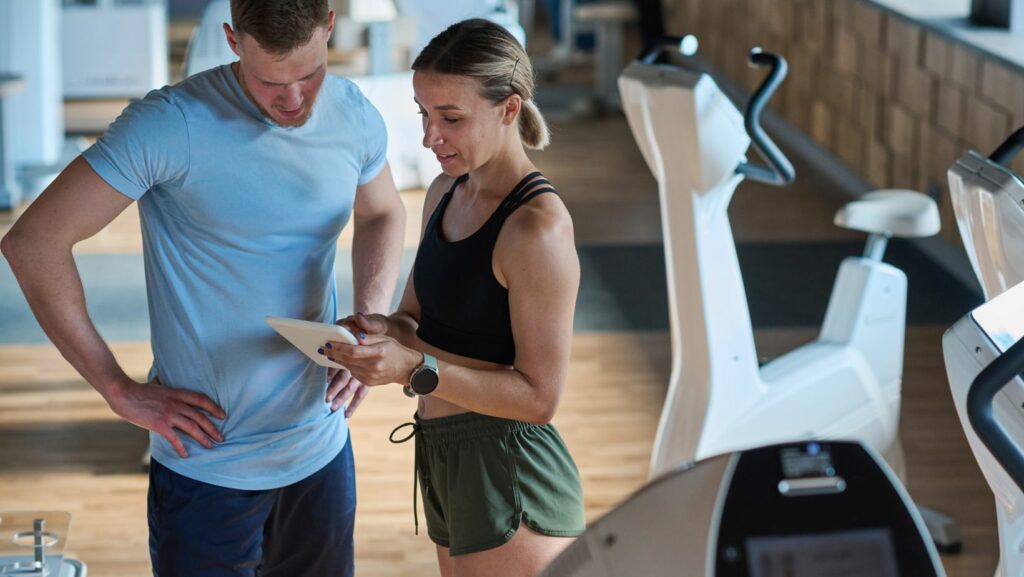In a world where athletes push their limits, fueling their bodies with the right nutrients is crucial. Enter sport nutrition master’s programs—where science meets sweat. These programs don’t just sprinkle some kale on your plate and call it a day; they dive deep into the art and science of performance nutrition, helping future experts understand what makes elite athletes tick (or sprint or jump).
Imagine mastering the secrets behind the perfect pre-game snack or crafting recovery meals that could make even a tired athlete do a happy dance. With a sport nutrition master’s, graduates aren’t just feeding athletes; they’re fueling champions. Whether it’s helping a marathon runner crush their personal best or guiding a weekend warrior to finally conquer that pesky five-mile run, these programs equip students with the knowledge to transform lives—one delicious bite at a time.
Sport Nutrition Masters Programs
Sport nutrition master’s programs focus on the science of nutrition as it applies to athletic performance. These programs prepare graduates to provide specialized dietary advice for athletes across multiple sports. Core curriculum elements often include advanced nutrition science, metabolic pathways, and physiology, ensuring students understand the human body’s complexities.
Students typically engage in coursework that covers nutritional strategies for enhancing performance and recovery. Practical experience is highly emphasized, with opportunities for internships or fieldwork in athletic settings. Additionally, research projects often allow students to explore current trends and innovations within sports nutrition.
Graduates from these programs are equipped to work in various roles. Positions may include nutritionists for professional sports teams, consultants for fitness organizations, or educators in health promotion. Many professionals also pursue certifications to bolster their credentials within the industry.
The demand for knowledgeable sports nutrition professionals continues to grow. As more athletes recognize the impact of nutrition on their performance, professionals with advanced degrees gain a competitive edge. Students interested in this field often seek accredited programs that offer comprehensive education and hands-on experience.
Scholarships and financial aid options are frequently available for prospective students. Many institutions encourage a diverse range of applicants, including those with backgrounds in sports science, dietetics, and health-related fields. Such inclusivity fuels the advancement of knowledge in sport nutrition and supports the development of future leaders in the industry.
Key Components of the Curriculum
Sport nutrition master’s programs offer a comprehensive curriculum designed to equip students with the knowledge and skills necessary for enhancing athletic performance through nutrition.
Core Courses
Core courses focus on essential topics within sport nutrition. Advanced Nutrition Science delves into the biochemical principles that underpin dietary practices for athletes. Metabolic Pathways studies how nutrients are metabolized during exercise, providing insights into energy production and utilization. Physiology examines the body’s responses to nutritional interventions during various types of physical activity. Courses on Nutritional Strategies for Performance and Recovery arm students with targeted approaches to optimize athletes’ pre-game meals and recovery plans. Finally, Research Methods in Nutrition prepares graduates to critically analyze scientific literature and implement evidence-based practices.
Elective Courses
Elective courses allow students to specialize within sport nutrition. Topics such as Exercise Physiology explore how different training regimens affect nutritional needs. Sports Psychology focuses on the mental aspects of athletic performance, emphasizing the role nutrition plays in psychological resilience. Nutritional Counseling covers communication techniques essential for working with clients. Some programs offer courses in Supplementation, guiding students through the complex landscape of dietary supplements and their efficacy. Additionally, Advanced Nutritional Biochemistry dives deeper into the molecular mechanisms of nutrient action, bridging gaps between diet, physiology, and performance.
Admission Requirements
Sport nutrition master’s programs typically have specific admission criteria that candidates must meet. These requirements ensure that students possess the foundational knowledge necessary for advanced study.
Academic Prerequisites
Applicants generally must hold a bachelor’s degree in a related field such as nutrition, exercise science, or health. Some programs accept degrees in other disciplines, contingent upon completing prerequisite courses in biology, chemistry, and nutrition. A strong academic record, often with a minimum GPA of 3.0, is also expected. Relevant coursework enhances an applicant’s profile, demonstrating preparedness for rigorous study. Additionally, some institutions may require letters of recommendation from professionals in the field, showcasing an applicant’s commitment and experience.
Application Process
The application process consists of several key steps. First, interested candidates must complete an online application form through the program’s website. Many programs require a personal statement detailing motivation for pursuing sport nutrition studies and relevant experiences. In addition to academic transcripts, applicants often submit their resume or CV highlighting relevant work, internships, or volunteer experiences. Some programs may conduct interviews, providing an opportunity for candidates to discuss their interest and readiness in greater depth. Finally, deadlines for applications vary, so potential students should check specific dates for each program.
Career Opportunities After Graduation
Graduates of sport nutrition master’s programs find numerous career opportunities in various sectors. Their specialized knowledge equips them to enhance athletic performance through optimal nutrition.
Job Roles in Sport Nutrition
Nutritionists frequently work with athletes, developing personalized dietary plans to boost performance. Coaches seek nutrition consultants to integrate nutritional strategies into training regimens. Additionally, registered dietitians may focus on sports nutrition, providing guidance on food choices for athletes. Some graduates assume roles as health and wellness coaches, helping clients implement sustainable nutrition habits. Research positions also exist, allowing professionals to study the effects of nutrition on physical performance.
Potential Employers
Athletic teams, including professional and collegiate organizations, often employ sports nutritionists to improve their athletes’ diets. Fitness centers and gyms increasingly hire nutrition consultants to provide tailored dietary support for members. Nutrition-focused companies, such as supplement manufacturers, hire experts to develop products aimed at enhancing performance. Hospitals and health clinics also offer roles for nutritionists, focusing on sports-related injuries and recovery. Academic institutions may provide opportunities in teaching and research, contributing to the expanding field of sport nutrition.
Popular Sport Nutrition Masters Programs
Sport nutrition master’s programs attract aspiring professionals eager to enhance athletic performance through specialized knowledge. Several programs consistently gain recognition for their comprehensive curriculum and practical training opportunities.
Program Rankings
Rankings often highlight the top sport nutrition master’s programs based on faculty expertise, research opportunities, and graduate outcomes. For instance, institutions like the University of Florida and Missouri State University regularly feature in these lists. Student satisfaction and job placement rates significantly impact these rankings, emphasizing the importance of a program’s effectiveness in preparing graduates for the workforce. Rankings also consider the program’s resources and accessibility, ensuring students receive the support necessary to excel.
Notable Institutions Offering Programs
Several institutions deliver exceptional sport nutrition master’s programs. The University of Colorado, Colorado Springs offers a blend of nutrition science and exercise physiology. Florida State University provides a robust curriculum focused on evidence-based nutrition practices. At the University of Delaware, students engage in hands-on experiences that prepare them for real-world applications. Universities like Texas A&M and the University of North Carolina also feature strong programs, combining theory with practical insights to ensure graduates are equipped for diverse roles in the field.
Optimizing Health and Performance
Pursuing a master’s degree in sport nutrition opens up a world of opportunities for those passionate about enhancing athletic performance. Graduates emerge with a comprehensive understanding of the intricate relationship between nutrition and exercise. They’re equipped with the skills to create tailored dietary plans that can significantly impact athletes’ performance and recovery.
As the demand for specialized sports nutrition professionals continues to grow, these programs play a crucial role in shaping the future of athletic training and health. With a solid foundation in science and practical experience, graduates are well-prepared to make meaningful contributions in various settings, from professional sports teams to academic institutions. Investing in a sport nutrition master’s program is a step towards a rewarding career dedicated to optimizing health and performance in the athletic community.



